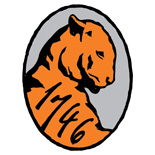Curtis FitzGerald ’70 Meets His Goals with a Scholarship and Legacy Gift

Curtis FitzGerald ’70 describes himself as “goal-oriented,” and one objective he’s targeted is helping future Princeton students — a thanks for his own “life-forming” experiences on campus 50-plus years after his graduation.
FitzGerald has maintained friendships with University roommates and enjoyed a second look at his alma mater through the eyes of one of his sons. His loyalty to Old Nassau spurred him to create the FitzGerald Family Scholarship in 2021 — two Princeton students have been aided by this scholarship so far — and subsequent additions to the scholarship will increase with a Venture Forward campaign match. He also joined the 1746 Society, committing part of his bequest so that it will benefit the University.
“Once our children were grown and settled, and life slowed down a little bit for us, my wife, Susie, and I realized that we could do something a little more significant with our resources than we had done before,” FitzGerald said. “As we did our estate planning, we made the decision that we would make provisions for a few of the organizations that had become important to us over the years, including both of our colleges.”
Try, try and try again
FitzGerald was a top student at his suburban New York City high school, where he also co-captained the varsity swim team. But he realized after his first year at Princeton that the Ivy pool competition was too fast. Mathematics was the favorite subject he thought he’d choose as a major, but his first class made his head swim.
“We spent the first two weeks discussing the concept of the number one. It was incredibly philosophical,” he said. “My mind was so practical that it was a massive mismatch.”
Meanwhile, a family friend who had inspired his ambition in math recommended he fulfill Princeton’s language requirement with German or Russian, the language of high-level international mathematicians. He chose Russian but struggled mightily with it.
“It was the kind of challenge that I faced often at Princeton, where I found I had to step up, and tell myself, ‘Okay, you’re not going to be the best at this,’ in contrast to my high school career,” he said. “I told myself, ‘You’re going to do this and you’re going to get through it.’ It taught me a lot about myself, that there are going to be tough things in life.”
“This is why I so valued my years at Princeton: It offered me opportunities that ended up changing my direction,” he said.
The shift came when FitzGerald signed up for an economics class with Burton Malkiel *64, now Chemical Bank Chairman’s Professor of Economics, Emeritus.
“Malkiel’s class was very important,” FitzGerald said. “Economics was not a subject studied in high school. I found it to be a great intersection of my interests because it used a lot of math, and microeconomics resonated with me as far as my interest in business.”
FitzGerald had found his major. Exploring international economics expanded his studies even more. He ultimately devoted his senior thesis to a comparison of interindustry structures in the United States and Brazil.
Career building and legacy building
For spending money as a student, FitzGerald signed on with the now-defunct Student Refreshment Agency. “I slung hotdogs at football games, basketball games and hockey games,” he said. “Eventually I worked my way up the food chain over the years to be the co-manager of the agency.” He gained experience in recruiting workers, organizing shifts and handling payroll.
All this (plus a post-graduation tour in the Navy Supply Corps and a Stanford MBA) came in handy for a career with ExxonMobil. He spent most of his three decades with the corporation as an executive in the international and corporate finance areas, including a five-year post in Brazil and another three in Germany. Before FitzGerald retired, he and his team had responsibility for ExxonMobil’s worldwide pension and 401k investments.
Over the course of his business traveling, FitzGerald noted how different countries addressed their population’s needs and how resources were shared. In Western Europe, for example, governments provide most of the social assistance. Observation of how this system, as well as Brazil’s policies, contrasted with those in the United States led him to reflect on citizen activism and philanthropy.
“When we got back here to Texas, we got a little bit more involved in activities that would benefit society, and particularly the local community,” FitzGerald said. “That became more and more important over the years.”
These activities included long-standing service to the United Way of Metropolitan Dallas and the Dallas Theater Center, among other groups.
Further conversations led to his 1746 Society membership and to support for the FitzGeralds’ alma maters, including the scholarship at Princeton.
“I think it’s really important to think about what has an impact on this world, and training young minds is, in my book, one of the one of the most important missions out there,” FitzGerald said. “Doing an estate plan and registering it with the 1746 Society is a wonderful way to make an impact, in whatever size or manner people choose.”
FitzGerald took advantage of a new opportunity to support Princeton. Princetonians who have celebrated their 50th reunion can receive current gift credit in the Venture Forward campaign for duly documented bequests to Princeton. Thus, gifts through a will, trust, or beneficiary designation in a life insurance policy, retirement fund, or brokerage account can be recognized during the donor’s lifetime as a gift to support scholarships or other priorities. Documented bequests also enroll donors as a member of the 1746 Society.
Click here to learn more about supporting Princeton with a bequest and joining the 1746 Society.
